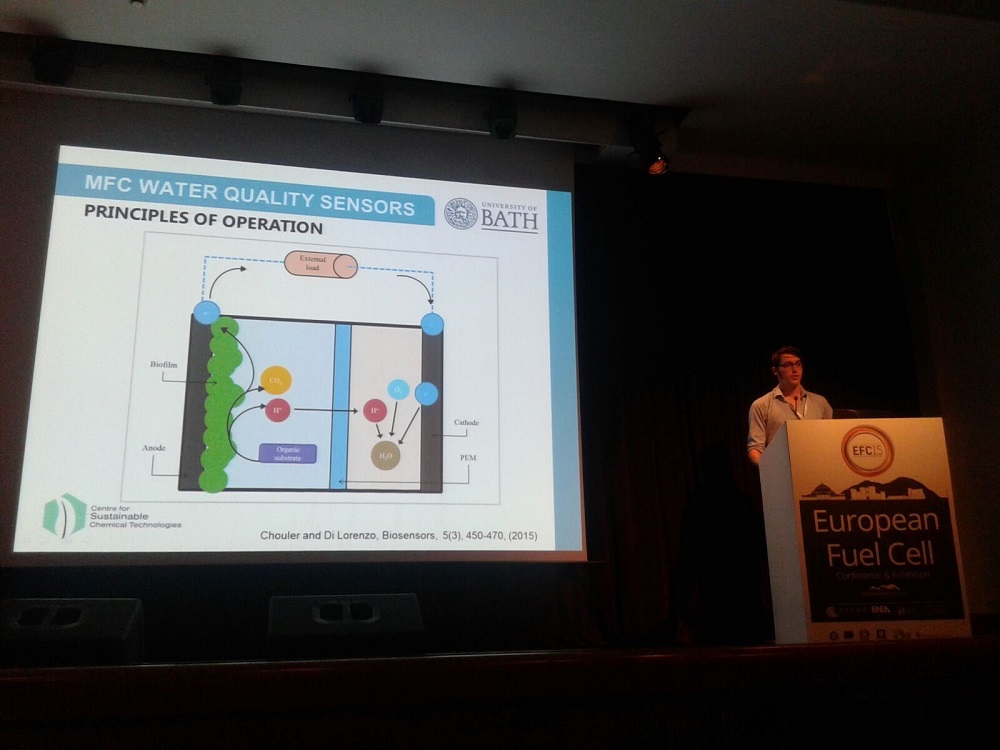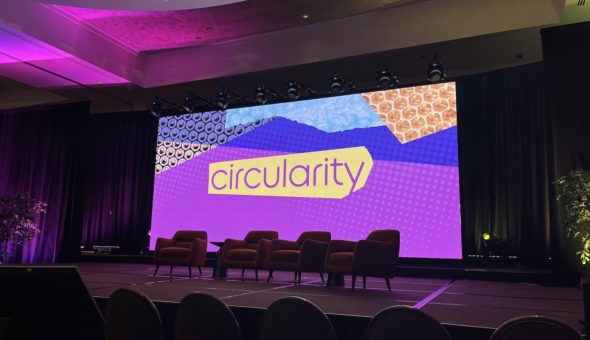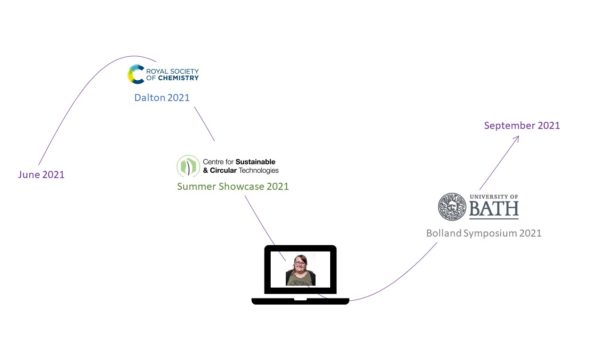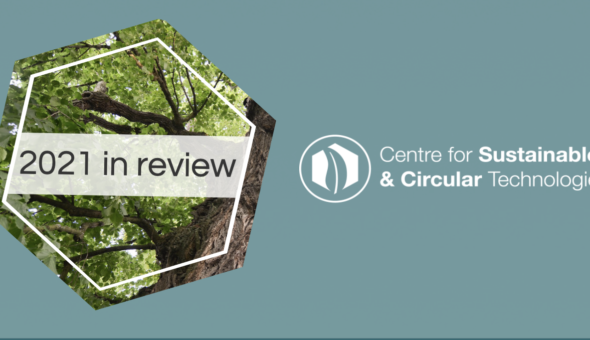CSCT student, Jon Chouler attended and gave a talk at the 6th European Fuel Cell Technology & Applications Piero Lunghi Conference (EFC), in Napoli, Italy. As well as being located in a beautiful city beside the Mediterranean Sea and the Vesuzio mountain, the conference focussed on a breadth of Fuel Cell research - such as hydrogen fuel cells, alternative fuel cells, and fuel cell modelling research, but his key interest was on a 2-day side event focussed on Microbial Fuel Cell technologies. Here is Jon's account on his trip:

My PhD research is based on the development of Microbial Fuel Cells (MFCs) to be used as a biosensor for monitoring water quality. I aim to develop miniature MFCs to be used to assess water quality in a simple, inexpensive, rapid and onsite way. In particular I am interested in the effect that toxic compounds, such as organic compounds and pesticides, have on the performance of these MFC sensors, and hence the suitability of this technology for detecting such compounds.
There was a range of topics discussed for MFC technologies at the conference, such as MFCs used for energy generation from wastewater, winery wastewater, solid waste and other novel sources. A series of interesting talks were delivered by the team from Bristol BioEnergy Centre at the University of West England, who primarily use human urine as a feedstock for their MFCs. Their work aims to develop MFCs to generate energy from urine for use in remote and developing regions, and therefore their technology needs to be cost-effective and simple to use. Seeing their approaches to this challenge, such as using cheap materials and effective stacking configurations, allowed me to reflect on my own work and discuss ideas with them afterwards. We even discussed opportunities to hold Public Engagement events together in the future to showcase MFC technology to schools in the west of England.
A fascinating talk I attended was given by Dr Abraham Núñez from IMDEA Water in Spain, who discussed his work around desalination MFCs - in particular the use of MFCs to treat wastewater for energy generation and for freshwater production. As part of his work he discussed the use of in-field, real-time MFC biosensors that his team was using to detect organic contaminant concentrations at a sewage treatment works. This was fascinating to see and discuss, especially because in-field tests of my MFC devices is something that I would like to accomplish in my PhD. Fortunately, I managed to discuss this research with Abraham Núñez afterwards and there is a promising potential for cross collaboration between our research groups.
Fortunately, and for the very first time, I had the opportunity to present my research in detail during an oral presentation that I gave to attendees of the MFC side event. Although rather nerve-racking, this gave me a great chance to showcase all the work I have been doing in my PhD and discuss it in detail with experts in the field - not only through questions afterwards but also in conversations throughout the conference. As a results of this and networking with others, I had an opportunity to assess my work critically and also develop new ideas with others which will inevitably be helpful throughout my PhD.
As a final note I would strongly recommend others doing their PhD to attend an international conference strongly focussed on their research, and if possible give an oral presentation. This experience provided me with an invaluable opportunity to network, develop and share ideas, and create new collaborations that will help me in the future.
Jon is in his third year of his degree in the CSCT and is working with Dr Mirella di Lorenzo, Dr Petra Cameron and Dr Barbara Kasprzyk-Horden. See more information about Jon's work.
Respond


